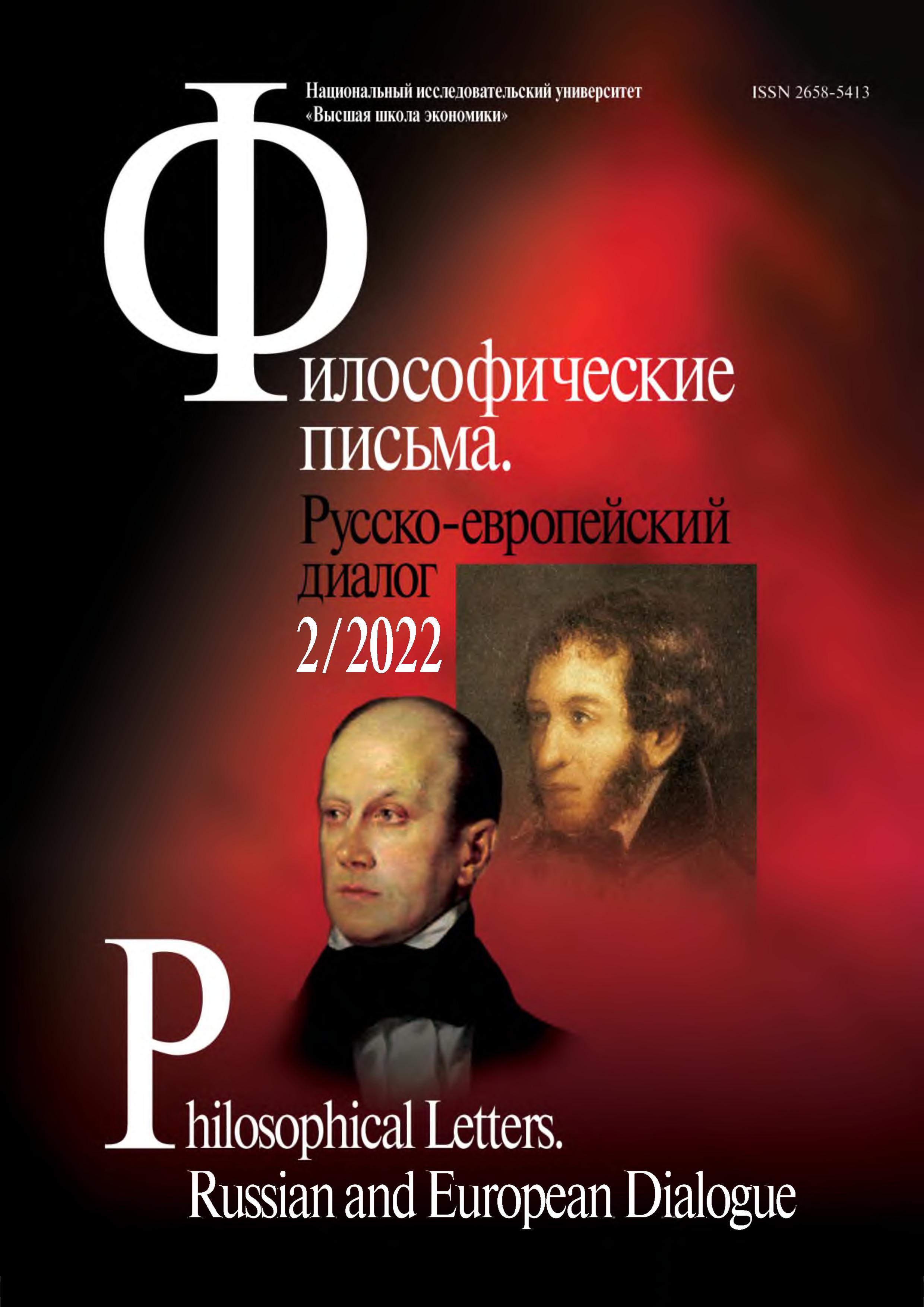Deconstruction of The One: Russian and European Experience
Abstract
This article deals with two twentieth-century concepts that represent an attempt to interpret and methodologically reconstruct the One in the history of philosophy. It is shown that the theme is conditioned by the crisis of classical philosophizing, consisting both in the rejection of metaphysical concepts to explain reality, and in the global crisis of verifi ability of truth. In this connection, the fundamental in its scope problem of The One, with which ancient philosophy began, has attracted more than ever the attention of philosophers of the twentieth century in an attempt to rethink the foundations of being and thinking. Among the Russian philosophers it is worth mentioning A. F. Losev who developed this problematic in the most consistent form throughout his creative work, and in the West — R. Schürmann who, inheriting both Heidegger's ontology and the French tradition of postmodernism, also tries to answer the question of what The Unity is. The choice of these personalities
is conditioned by the discovery of a maximal similarity, in comparison with other twentieth-century conceptions of The One, in the intensions that underline the basic character of the concept of the primordial in the history of philosophy and both understand its changeable, relative character. Losev referred to the latter phenomenon as relative myth, Schürmann to hegemonic phantasm. In other words, any epoch,
according to these authors, can be characterised by its unities, which are raised to absolutes largely within the framework of linguistic and normative practices. The difference between them is also noted — according to the Hegelian Losev, the One, although apophatic, has an authoritarian character; while Schürmann believes that the One is important to read not as any narrative principle, but as a radically transcendent beginning. The conclusion is that according to Schürmann, henology is a denial of the old metaphysics, the post-metaphisical transition; according to Losev, it is rather a return to the classical metaphisic

